
https://www.youtube.com/watch?v=mm14gkLzibM
At an aquafarm on Ecuador’s coast, workers toiled to provide ample nourishment to the crustaceans, repeatedly maneuvering their small boats across the farm’s ponds to hand feed the underwater colony.
Then the aquafarm’s operator, Omar Portugal, had an idea: He decided to listen to the shrimp. He dropped a hydrophone into the water to eavesdrop as they ate.
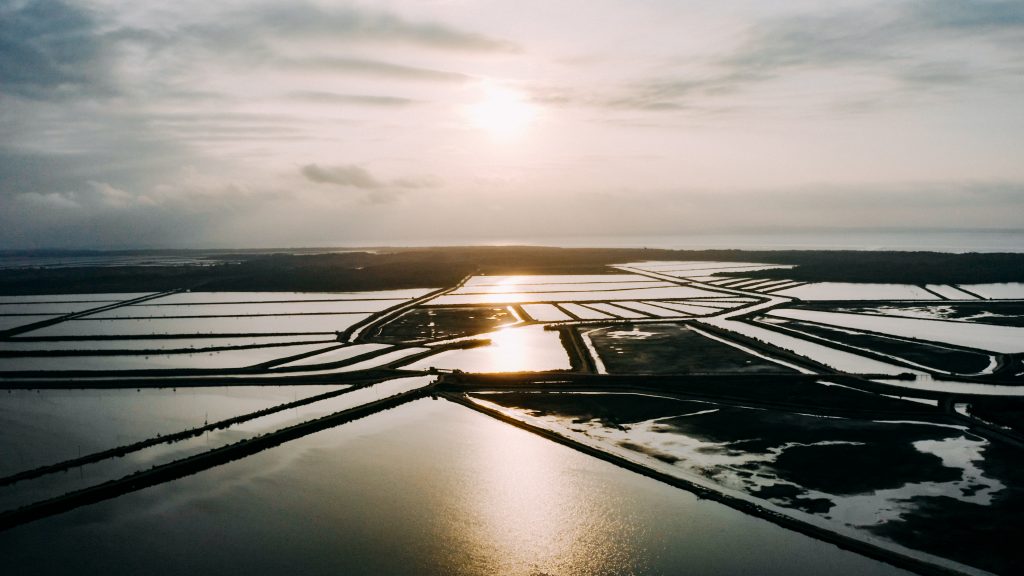
Pescanova’s aquafarm in Ecuador.
Working with Microsoft, Portugal and his team also adopted new software, added more data-gathering sensors, and floated several automated feeding stations atop the shrimp pond at the Marfrisco Aquafarm. The facility is one of numerous farms operated around the world by Nueva Pescanova, a Spain-based company specializing in the fishing, farming, processing and sale of seafood products.
Turns out, it was noisy below the pond’s surface.
The hydrophone detected chewing sounds – sounds full of data. The software translated that crunchy cacophony into algorithms. Next, those algorithms were uploaded to a platform built with Artificial Intelligence services from Microsoft, as well as Microsoft 365, Azure and Azure IoT. And that platform – dubbed Smartfarm – told the feeding stations precisely how much food to sprinkle into the water.
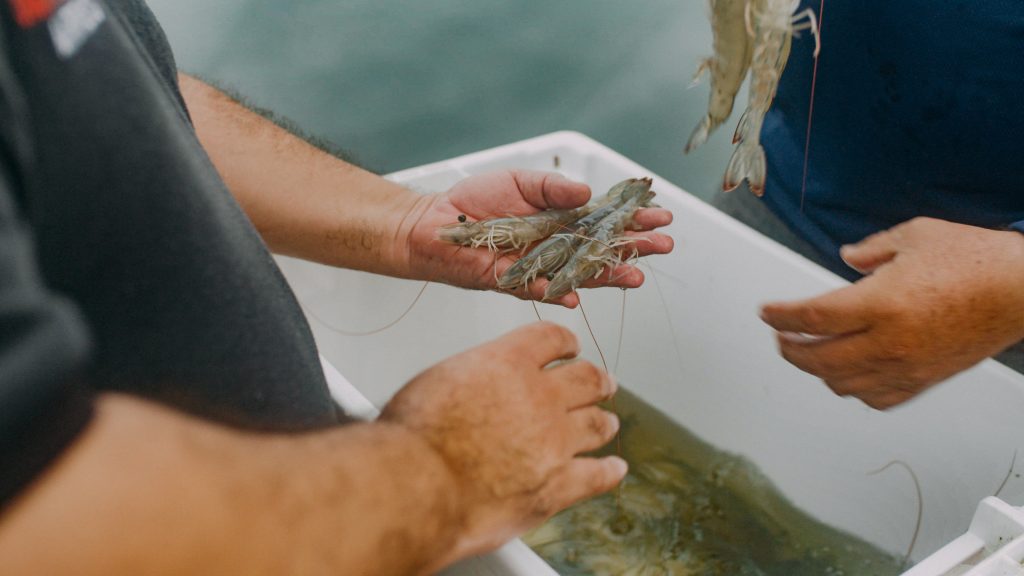
Shrimp at Pescanova’s aquafarm.
“This was one of the problems we needed to solve using technology, but also to ensure that our farmers wouldn’t be left behind,” said Portugal, general manager of Marfrisco Aquafarm.
Smartfarm is the first solution to emerge from a 2021 collaboration agreement between Nueva Pescanova and Microsoft. The platform interprets an array of data gathered by sensors – from oxygen levels to shrimp per square meter – then provides insights and alerts to help aquafarmers maximize harvests, sustainability and animal welfare.
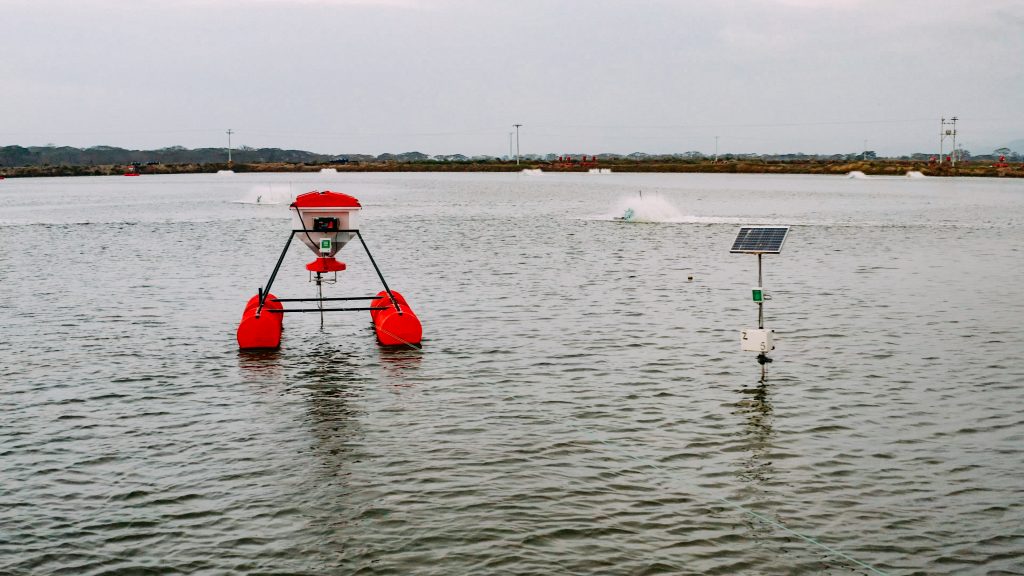
An automated feeding station floats atop a Pescanova shrimp pond.
By using Smartfarm’s data-fueled insights, Portugal says he made more informed decisions about how to better sustain his colony. Meanwhile, his workers are busier than ever, using their boats to check the automatic feeders and the system’s connectivity. The aquafarm has even hired additional workers.
As proof, shrimp yields increased from 800 to 3,200 kilos per acre.
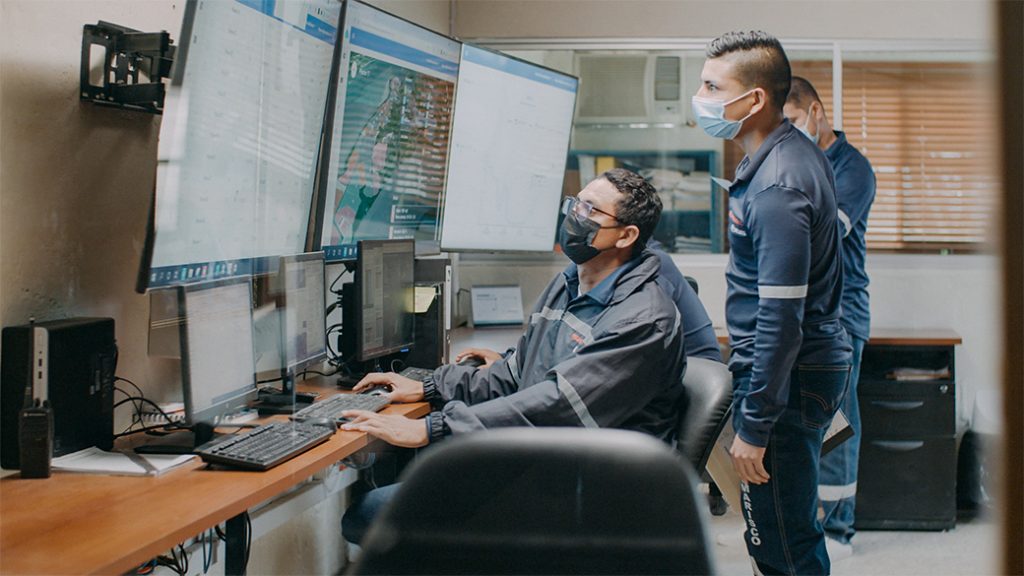
Pescanova employees review the latest data insights from their aquafarm.
That’s a crucial outcome when it comes to ongoing efforts to feed the world. Each year, global seafood consumption grows by about 4%, says Ignacio Gonzalez, CEO of Nueva Pescanova.
“It’s clear the sea cannot supply more fish,” Gonzalez says.
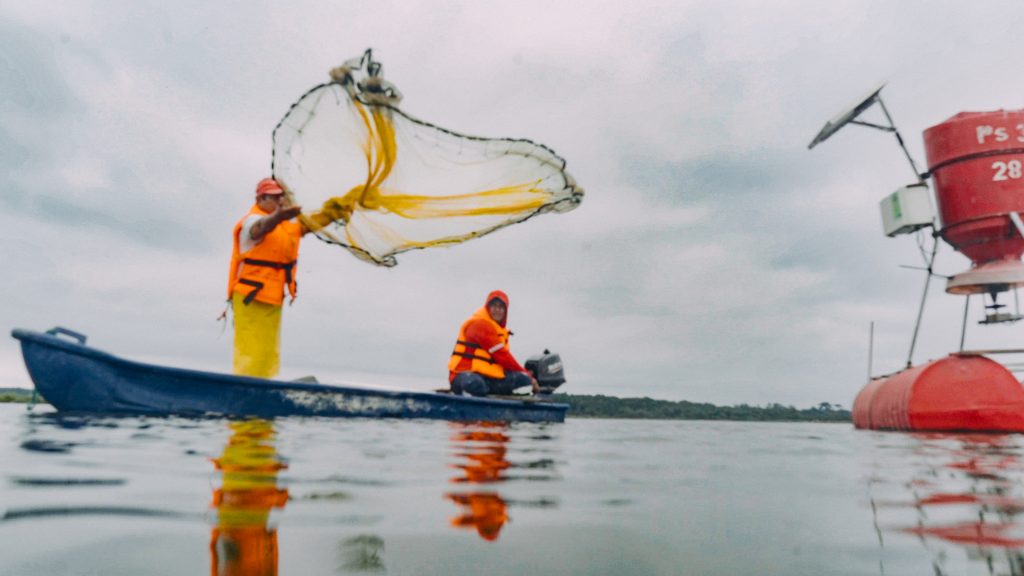
Pescanova aquafarmers prepare to harvest shrimp.
As a result, in 10 to 15 years, an estimated 60 percent of the world’s seafood will be grown and harvested via aquaculture, Gonzales explains. Aquaculture involves the breeding and raising of fish, shellfish and plants that are farmed in water.
“Sustainability is not just a strategy for the company,” Gonzalez says. “It is the strategy of the company.”
Learn more about the collaboration between Nueva Pescanova and Microsoft.

